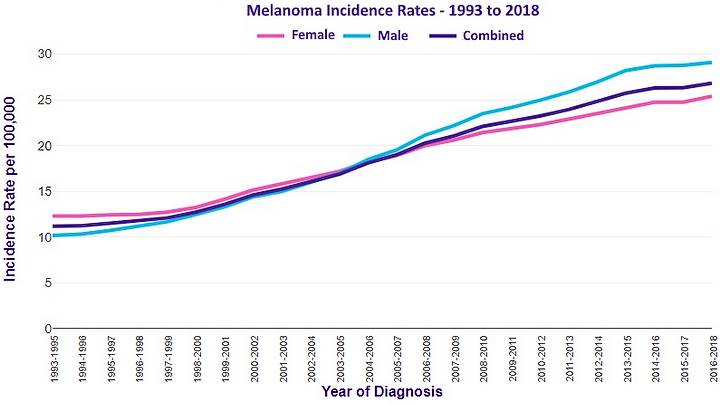 Few diseases have risen in recent years at the rate of skin cancer, the dangers of melanoma deserving particular note.
Few diseases have risen in recent years at the rate of skin cancer, the dangers of melanoma deserving particular note.
Greater awareness and better diagnosis have contributed to the increase, as has the change in longevity. Melanoma may take many years to go from sunburn initiated DNA damage, to a cancer which can spread from our skin to vital organs.
An article Cancer Research UK issued in 2024 did state that the peak time for melanoma is well into retirement. They equally highlighted growth in reported cases amongst most age groups, 25 to 50 year olds saw an increase close to 70%.
There is a high probability that the UK will see over 20,000 melanoma cases for the first time this year, yet the disease is largely preventable.
Avoiding The Trend
The sun can be a pleasure but dangerous in higher doses, spending time in the shade a couple of hours either side of midday will make a difference.
So will taking rational precautions, such as wearing a long sleeved top, a wide-brimmed hat and sunglasses. Use of good quality sunscreen is just as vital, reapplied every couple of hours, or after swimming.
As much as they love running in the sun, or diving in the water, those precautions are important for children. There is clear evidence that the melanoma someone has at 60 may have begun with excessive sun exposure in childhood.
Above all, avoid sunburn, which is the historic root of much melanoma. Sunburn is not a base for a tan, just damage to your skin.
Changing Times
As with climate change itself, more research is needed to prove a definitive link with an increase in skin cancer. Limited studies to date do however suggest this, along with a logical view on what we know.
A depleted ozone layer allows more UV rays to reach us. Rising temperatures inevitably lead to greater sun exposure, to support a wish for fresh air, or because the outdoor world is accessible throughout more of the year.
Greater air pollution due to climate change has the potential to increase tumorigenesis, the transformation of normal cells into cancer.
The Bottom Line
That the sun can be damaging is known throughout nature, part of the reason smooth skinned animals such as rhino roll in the mud, or others find shade.
We also need to protect ourselves and have every reason to, almost 9 in 10 melanoma are caused by UV radiation. Neither should we forget additional, more numerous types of skin cancer, which can inflict notable harm.
Our clinic is here for you if you do need skin cancer treatment but all the better to make a few decisions which prevent the need.
